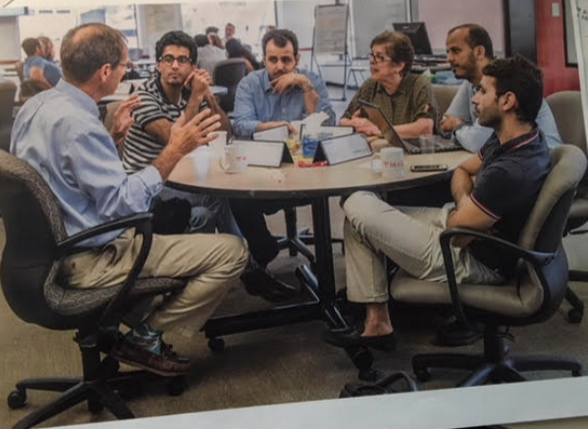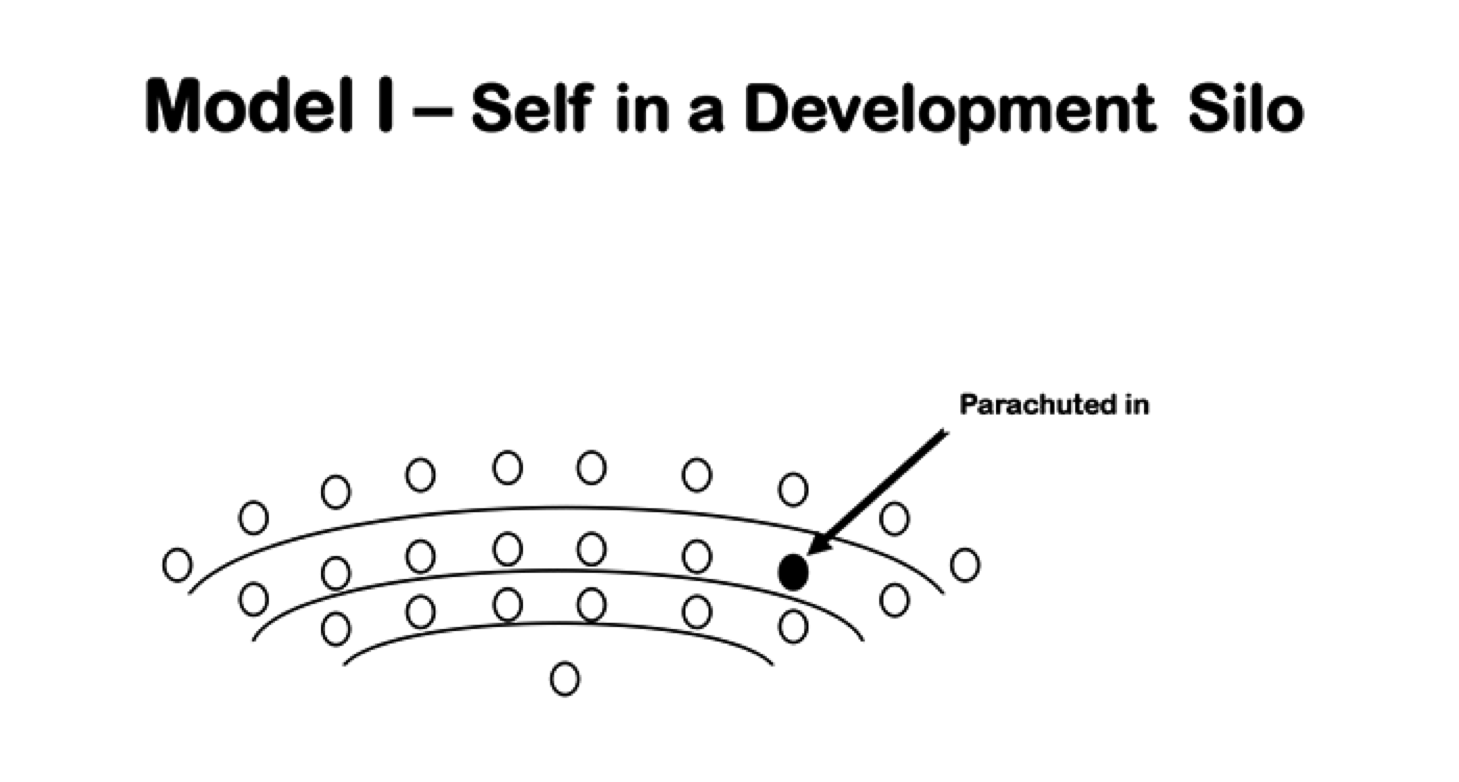Imagine an “emba” that engages managers beyond administration
5 April 2019There is plenty of business education, but hardly any management education. As a manager who is performing well, but wishing to perform better, should you do an EMBA? Not if it is about the administration of business rather than the practice of managing. Do you really want to sit in a nice neat row listening to lectures about action, or formulating strategies for companies you know nothing about while your own first-hand experience is being ignored? How about an emba that engages you as a manager, beyond administration.
Three Wrongs
For years, I went around giving talks at business schools about what is wrong with regular MBA education for management, namely that it trains the wrong people in the wrong ways with the wrong consequences.
The people are wrong, because they lack the necessary experience. You have to live management to learn management. A manager cannot be created in a classroom.
The ways are wrong because they focus on what management is not. Management is a practice, where the art of vision, the craft of experience, and the science of analysis meet. Since the art cannot be taught and the craft can only be learned from experience, MBA programs rely on the science, by teaching analysis and technique, or else they use the disconnected experience of case studies. One gives the impression that managing is about modeling and measuring, the other that it is about posturing and pronouncing (see Jack’s turn).
And this produces the wrong consequences, by distorting how too many MBAs practice management: as disconnected leadership. (For what happens when these managers become CEOs, see some troubling evidence.) Upon graduation, MBAs should be stamped with a skull and crossbones on their foreheads: Warning! Not prepared to manage.
EMBA programs take many of the right people—with managerial experience—and then train them in the same ways with the same consequences. Indeed, for years promotion for the top-rated Wharton EMBA boasted that it gives the students the same as they get in the regular MBA. Imagine that: nothing more for people with managerial experience!
Don’t get me wrong: Many MBA programs do a fine job of developing people for certain specialized jobs in business, such as financial analysis and marketing research. They just need to stop confusing this with the practice of managing.
Educating for Management
As I gave those talks, people started asking me the question that should never be asked of an academic: “What are you doing about it?” (We academics are supposed to criticize, not do anything about anything.) Duly embarrassed, in 1996 I teamed up with colleagues at prominent business schools around the world to change how management is taught, and practiced. We created the International Masters Program for Managers (impm.org), followed later by the International Masters for Health Leadership (imhl.org), and CoachingOurselves.com.
I remain personally involved in parts of the design and delivery of all these programs, and, frankly, they are wonderful, even if I have to say so myself. (I don’t. For example, a senior manager in banking said: “Now, four and a half years later, I am left with the distinct desire to do it all over again.” Other comments can be found on impm and mcgill.ca/imhl.)
While a manager cannot be created in a classroom, it is quite remarkable what a classroom of experienced managers can do when they are given the chance to reflect on their own experience and share their insights with each other. T.S. Eliot wrote in one of his poems that “We had the experience but missed the meaning.” Management education should be about getting the meaning.
The managers—average age in the 40s, which can amount to half a millennium of experience—stay on the job, and attend five modules of 10 days each over 16 months, held in England, Canada, India, Japan, and Brazil. Other activities on the job are designed to use work rather than make work. These modules focus, not on the functions of business, but on the mindsets of managing:
- The Reflective Mindset—managing self
- The Analytic Mindset—managing organizations
- The Worldly Mindset—managing context
- The Collaborative Mindset—managing relationships
- The Action Mindset—managing change
At the end of the very first module, in 1996, on the reflective mindset, while everyone else was going around saying “It was great meeting you!”, Alan Whelan, a sales manager at BT, was saying: “It was great meeting myself!” And in the worldly mindset, the managers meet their own world. We decided to call it “worldly” rather than “global” because the IMPM is not about becoming cookie-cutter global, it’s about getting into other people’s worlds to better understand their own world. This module is held in India, where the Indian managers in the program help their colleagues understand this other world.
We have a fifty-fifty rule in our classrooms: half the class time is turned over to the managers on their agendas. Hence they sit at round tables in a flat room so that they can go in and out of workshops at a moment’s notice. No need to “break out”. A variety of novel seating arrangements has resulted, including the use of keynote listeners at the tables and of inner circle discussions where people tap each other in and out of the conversations (see Don’t just sit there…).

Communityship beyond leadership
The managers in the IMPM are not lone wolves, parachuted into selfie-silos, as shown below. As indicated in the figure that follows, they are colleagues in a community of social learning, connected back to their home organizations. It has been said never to send a changed person back to an unchanged organization. But almost all management education and development programs do just that. We seek to do differently by asking the managers to form IMPact teams at work, to carry their learning back into their organizations for change. The manager in a small company who had to pick up the pieces after it had run into a serious problem reported that the IMPact team he created saved the company.


As suggested above, we favor communityship beyond leadership, in our programs and beyond. A number of innovations support this. For example, the concerns of each manager become the focus of friendly consulting by a small group of colleagues. One participant’s own manager had suddenly quit, and she was trying to decide whether to apply for the position. The hour of friendly consulting was so helpful that it continued over lunch.
In the managerial exchange, the IMPM managers pair up and spend the better part of a week at each other’s workplaces. The first time this happened, Mayur Vora travelled from his jam-and-jelly company in Pune, India to visit Françoise LeGoff, number two on the Africa desk at the International Federation of the Red Cross in Geneva. On the first day, Mayur saw Françoise typing and asked, “Can’t a secretary do that?” Welcome to the worldly mindset: Geneva is not Pune! On the last day, Mayur told Françoise he would be happy to meet with any of her staff. All of them lined up to convey various messages through him. Françoise reported that Mayur “was like a mirror for me.”
The MBA is fine so long as it is recognized for what it does well, namely train people for certain specialized jobs in business. But it must also be recognized for what it does badly, namely develop people to manage. Managing is too important to be left to the consequences of the MBA. it’s time for management education.
© Henry Mintzberg 2019. The next impm.org cohort begins in September.
This TWOG is adapted from a story in Bedtime Stories for Managers, which was adapted from one of 7 February 2017. For more on these programs, see Chapters 1-6 of my book Managers not MBAs; also the articles Looking Forward to Development, From Management Development to Organization Development with IMPact, and The five minds of a manager.